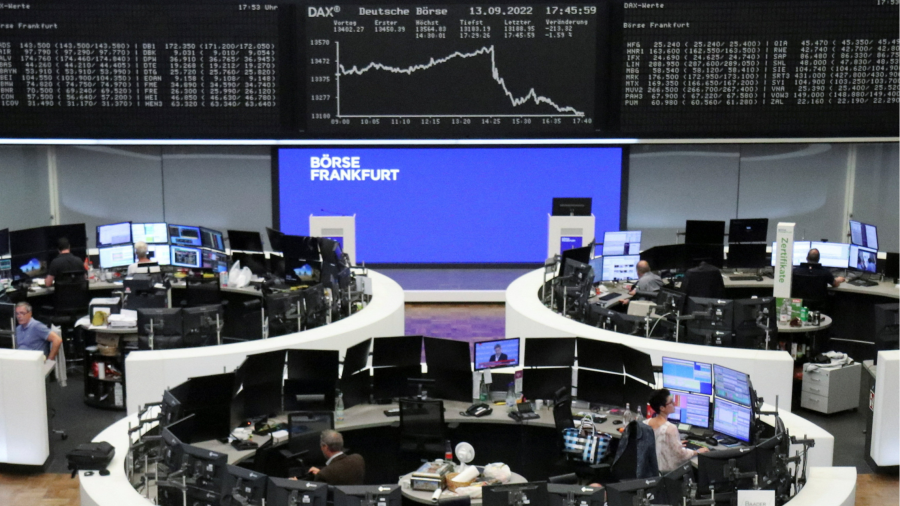[ad_1]
European shares fell on Wednesday after the worst sell-off on Wall Street since June 2020, as hotter than expected US inflation data fuelled bets of more aggressive interest rate rises by the Federal Reserve.
The regional Stoxx Europe 600 dropped 0.4 per cent, extending losses from the previous session. The FTSE 100 also slipped 0.5 per cent, even as UK inflation data for August came in cooler than anticipated. In Asian markets, Hong Kong’s Hang Seng index lost 2.4 per cent, while Japan’s Topix fell 2 per cent.
Those declines came after the US’s S&P 500 gauge posted its steepest drop since the early days of the pandemic, tumbling 4.3 per cent on Tuesday, on the back of a higher than forecast inflation reading for August.
Consumer prices in the world’s largest economy rose by 0.1 per cent in August from the previous month, official data showed, compared with expectations for a decline of 0.1 per cent. The annual rate came in at 8.3 per cent, down from July’s figure of 8.5 per cent but above economists’ estimates of 8.1 per cent.
The inflation report prompted investors to crank up their expectations of how far and fast the Fed will hoist borrowing costs, with markets now pricing in a 1-in-3 chance that the US central bank will lift rates by a full percentage point this month, according to CME Group data based on trading in federal funds futures. A move of such magnitude would follow two consecutive increases of 0.75 percentage points.
“Two historically outsized hikes this summer seem to have had a weaker immediate impact on the inflationary landscape than anticipated, leading markets to believe the Fed may be forced to make the hike of the century,” said strategists at JPMorgan.
Markets are now expecting the Fed’s main interest rate to peak at about 4.3 per cent in March 2023, an increase of about 0.3 percentage points since Monday.
The tech-heavy Nasdaq Composite, whose constituents are seen as most exposed to higher interest rates, closed 5.2 per cent lower on Tuesday.
Mansoor Mohi-uddin, chief economist at Bank of Singapore, said the August consumer price index data “increases our conviction the Federal Reserve will stay hawkish”. He added that “the likelihood of further rapid Fed rate hikes will increase the risks of the US falling into recession towards the end of 2023 or early 2024”.
Fresh data on Wednesday showed that UK inflation dipped below 10 per cent in the year to August, defying expectations that it would come in above July’s reading of 10.1 per cent on the back of lower petrol prices.
Economists expect the country’s inflation rate to hover around the 10 per cent level through autumn, after prime minister Liz Truss’s pledge to protect households from rising gas prices.
In government debt markets, the yield on the two-year US Treasury note, which is sensitive to changes in interest rate expectations and hit its highest level since 2007 on Tuesday, added 0.03 percentage points to 3.79 per cent. Bond yields rise as their prices fall.
Futures contracts tracking the S&P 500 edged 0.1 per cent higher in early European trading on Wednesday.
[ad_2]
Image and article originally from www.ft.com. Read the original article here.

